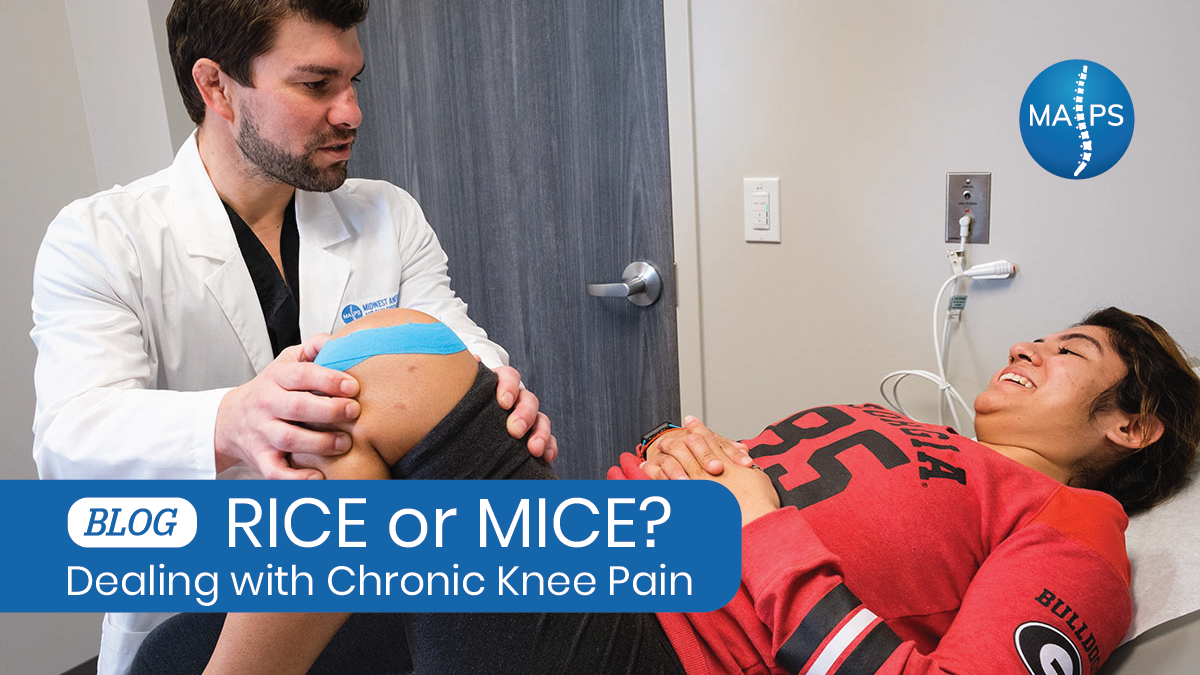RICE or MICE? Dealing with Chronic Knee Pain


Chronic pain can be of the most taxing conditions not only for the level of pain it causes but for the inconvenience it creates, too. Needed to support our bodies in nearly every activity, we often chalk the pain up to a bad night’s rest or a sore spot that will eventually go away.
This approach can lead to the condition worsening over time and it’s recommended to begin treating your condition with knee pain exercises. Whether you choose to follow a RICE or MICE plan is the first step to begin finding relief to your pain.
The Difference Is Small but Important
RICE stands for rest, ice, compression, and elevation. This is one of the most common responses to injury is to let the limb completely rest while it heals. For chronic knee pain, this could have a major impact on your day-to-day life if you attempt to abstain from any movement.
On the other hand, MICE stands for motion, ice, compression, and elevation. It is an approach based on keeping your knees moving as much as comfortably possible. This helps to continue strengthening the muscles while reducing overall strain compared to standard levels of activity.
Strengthening the ligaments that form the structure of your knee is key to long-term success of at-home pain relief.
Slow Motion’s Better Than No Motion
At the end of the day, finding a happy medium between full rest and normal activity levels will yield the best results. Activities such as swimming, using a low resistance exercise bike or elliptical are popular choices.
If you aren’t sure where to draw the line, it’s a good idea to consult a professional on the matter. The team at Midwest Anesthesia and Pain Specialists is committed to the natural relief of your body’s chronic pain without the use of surgery or pain-killers.
Don’t Spend Another Day Without Relief
Our team is made of local Chicago pain doctors that are ready to assist and provide you with a treatment plan made just for you. Putting professionalism first, each doctor that works with MAPS is double board certified and fellowship trained.
This commitment to proper education and training is to work towards the goal of compassionate care through Interventional Pain Medicine, avoiding the downsides that come with drugs and invasive surgeries. If you or a loved one suffer from chronic pain, please reach out to MAPS today.

